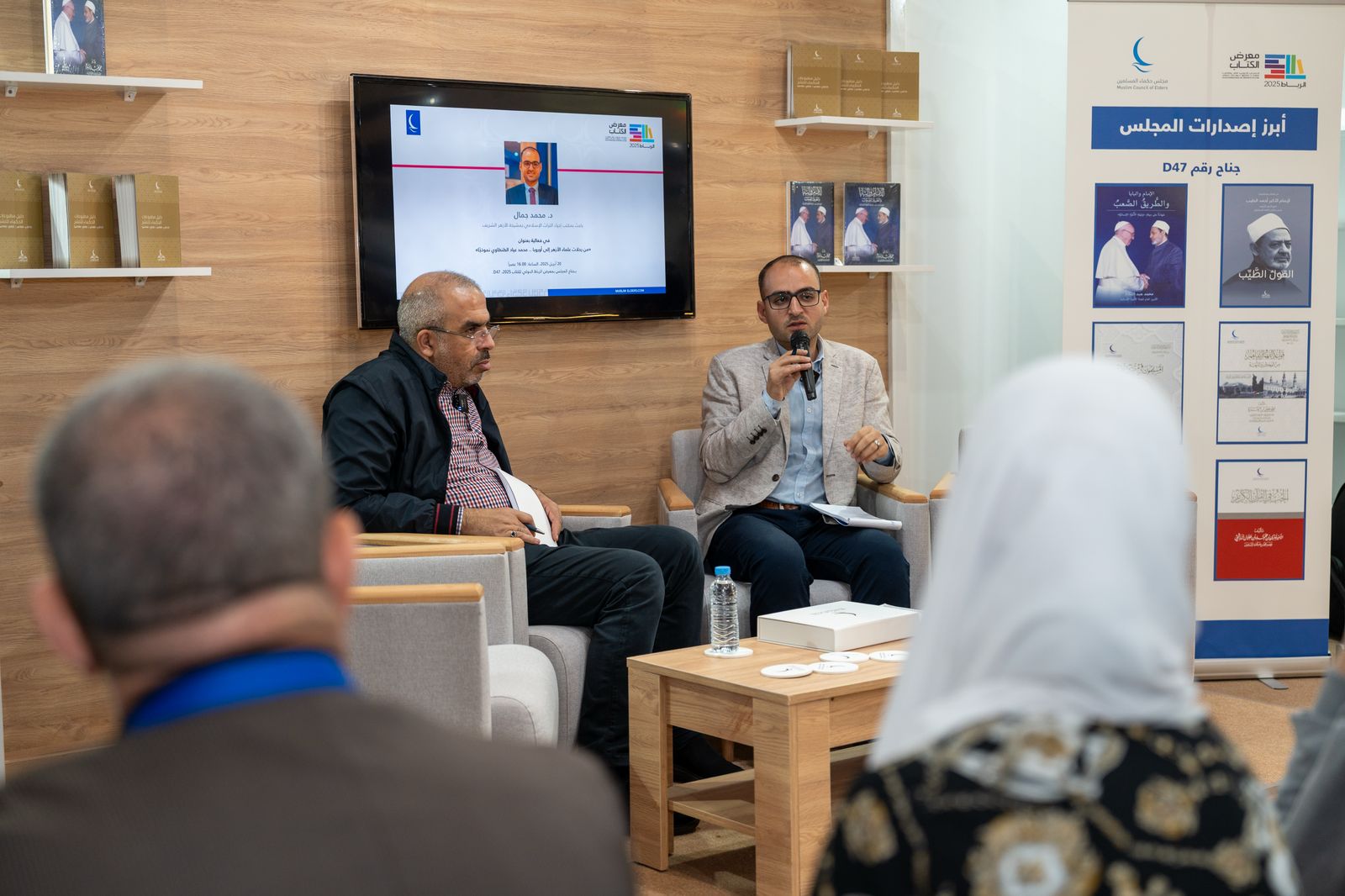Seminar at the Rabat International Book Fair Highlights Al-Azhar and the Muslim Council of Elders’ Contributions to Travel Literature Through the Legacy of Mohamed ‘Ayyad al-Tantawi
Dr. Samir Boudinar: Travel literature is a rich heritage that serves Islamic civilization
Dr. Mohamed Jamal: Al-Tantawi, an Al-Azhar scholar, left behind a profound Islamic legacy through his journey to Russia
As part of its cultural program at the 30th edition of the Rabat International Book Fair, the Muslim Council of Elders’ pavilion hosted its fourth cultural seminar, titled “From the Journeys of Al-Azhar Scholars to Europe: Mohamed ‘Ayyad al-Tantawi as a Model.” The session was moderated by Dr. Samir Boudinar, Director of the Al Hokama Center for Peace Research, and featured a presentation by Dr. Mohamed Jamal, a researcher at the Heritage Revival Office of Al-Azhar.
In his opening remarks, Dr. Boudinar emphasized that the Muslim Council of Elders, led by His Eminence Prof. Dr. Ahmed Al-Tayeb, Grand Imam of Al-Azhar, places strong emphasis on the genre of travel literature due to its wealth of cultural and historical value that enriches the Islamic intellectual tradition. He explained that Islamic civilization is a knowledge-based civilization that has produced a vast and diverse body of literature and sources, enriched by lived experiences and accumulated wisdom. In this context, he highlighted that travel has long symbolized the pursuit of knowledge and has played a key role in shaping the methodologies of learning across the many disciplines of Islamic civilization.
For his part, Dr. Mohamed Jamal stated that Al-Azhar stands as a beacon of knowledge in the Arab Mashriq and a venerable institution that embodies openness to the other. From its ranks have emerged distinguished scholars who became shining lights in the history of Islamic civilization—among them, Mohamed ‘Ayyad al-Tantawi, the first teacher of Arabic language and literature in Russia. Despite the many challenges he faced, Al-Tantawi brought back to the Islamic world valuable observations, experiences, and insights from Russia, enriching Islamic civilization with his contributions, which he compiled in his book “Tuhfat al-Adhkiya ila Bilad Rusiya” (The Precious Gift of the Sharp-Witted in the News about the Russian Land).
Dr. Jamal added that Al-Tantawi’s journey to Russia represents the Islamic civilization’s openness to the West and its commitment to the values of dialogue and mutual understanding. He noted that such openness to the other is a core principle of Islam—one that Al-Azhar continues to uphold through its engagement with the genre of travel literature.
The Muslim Council of Elders’ pavilion at the Rabat International Book Fair features over 250 diverse intellectual and cultural publications, including several of the Council’s latest 2025 releases addressing major cultural and philosophical themes. The pavilion also hosts a series of thought-provoking events with leading scholars, thinkers, writers, academics, and university professors. This initiative reflects the Council’s mission to promote peace and advance the values of dialogue, tolerance, and human coexistence. The Council’s pavilion is located at Stand D47 in the Souissi district of Rabat, the capital of Morocco.

